第11章
Moreover, to revert to another point which we touched just now, man has a body as well as a mind; and with the vast majority there will be no MENS SANA unless there be a CORPUS SANUM for it to inhabit. And what outdoor training to give our youths is, as we have already said, more than ever puzzling. This difficulty is felt, perhaps, less in Scotland than in England. The Scotch climate compels hardiness; the Scotch bodily strength makes it easy; and Scotland, with her mountain- tours in summer, and her frozen lochs in winter, her labyrinth of sea- shore, and, above all, that priceless boon which Providence has bestowed on her, in the contiguity of her great cities to the loveliest scenery, and the hills where every breeze is health, affords facilities for healthy physical life unknown to the Englishman, who has no Arthur's Seat towering above his London, no Western Islands sporting the ocean firths beside his Manchester. Field sports, with the invaluable training which they give, if not"The reason firm," yet still
"The temperate will, Endurance, foresight, strength, and skill,"have become impossible for the greater number: and athletic exercises are now, in England at least, becoming more and more artificialized and expensive; and are confined more and more - with the honourable exception of the football games in Battersea Park - to our Public Schools and the two elder Universities. All honour, meanwhile, to the Volunteer movement, and its moral as well as its physical effects. But it is only a comparatively few of the very sturdiest who are likely to become effective Volunteers, and so really gain the benefits of learning to be soldiers. And yet the young man who has had no substitute for such occupations will cut but a sorry figure in Australia, Canada, or India; and if he stays at home, will spend many a pound in doctors' bills, which could have been better employed elsewhere. "Taking a walk" -as one would take a pill or a draught - seems likely soon to become the only form of outdoor existence possible for too many inhabitants of the British Isles. But a walk without an object, unless in the most lovely and novel of scenery, is a poor exercise; and as a recreation, utterly nil. I never knew two young lads go out for a "constitutional," who did not, if they were commonplace youths, gossip the whole way about things better left unspoken; or, if they were clever ones, fall on arguing and brainsbeating on politics or metaphysics from the moment they left the door, and return with their wits even more heated and tired than they were when they set out. I cannot help fancying that Milton made a mistake in a certain celebrated passage; and that it was not "sitting on a hill apart," but tramping four miles out and four miles in along a turnpike-road, that his hapless spirits discoursed"Of fate, free-will, foreknowledge absolute, And found no end, in wandering mazes lost."Seriously, if we wish rural walks to do our children any good, we must give them a love for rural sights, an object in every walk; we must teach them - and we can teach them - to find wonder in every insect, sublimity in every hedgerow, the records of past worlds in every pebble, and boundless fertility upon the barren shore; and so, by teaching them to make full use of that limited sphere in which they now are, make them faithful in a few things, that they may be fit hereafter to be rulers over much.
I may seem to exaggerate the advantages of such studies; but the question after all is one of experience: and I have had experience enough and to spare that what I say is true. I have seen the young man of fierce passions, and uncontrollable daring, expend healthily that energy which threatened daily to plunge him into recklessness, if not into sin, upon hunting out and collecting, through rock and bog, snow and tempest, every bird and egg of the neighbouring forest. I have seen the cultivated man, craving for travel and for success in life, pent up in the drudgery of London work, and yet keeping his spirit calm, and perhaps his morals all the more righteous, by spending over his microscope evenings which would too probably have gradually beenwasted at the theatre. I have seen the young London beauty, amid all the excitement and temptation of luxury and flattery, with her heart pure and her mind occupied in a boudoir full of shells and fossils, flowers and sea-weeds; keeping herself unspotted from the world, by considering the lilies of the field, how they grow. And therefore it is that I hail with thankfulness every fresh book of Natural History, as a fresh boon to the young, a fresh help to those who have to educate them.
The greatest difficulty in the way of beginners is (as in most things) how "to learn the art of learning." They go out, search, find less than they expected, and give the subject up in disappointment. It is good to begin, therefore, if possible, by playing the part of "jackal" to some practised naturalist, who will show the tyro where to look, what to look for, and, moreover, what it is that he has found; often no easy matter to discover. Forty years ago, during an autumn's work of dead-leaf- searching in the Devon woods for poor old Dr. Turton, while he was writing his book on British land-shells, the present writer learnt more of the art of observing than he would have learnt in three years' desultory hunting on his own account; and he has often regretted that no naturalist has established shore-lectures at some watering-place, like those up hill and down dale field-lectures which, in pleasant bygone Cambridge days, Professor Sedgwick used to give to young geologists, and Professor Henslow to young botanists.